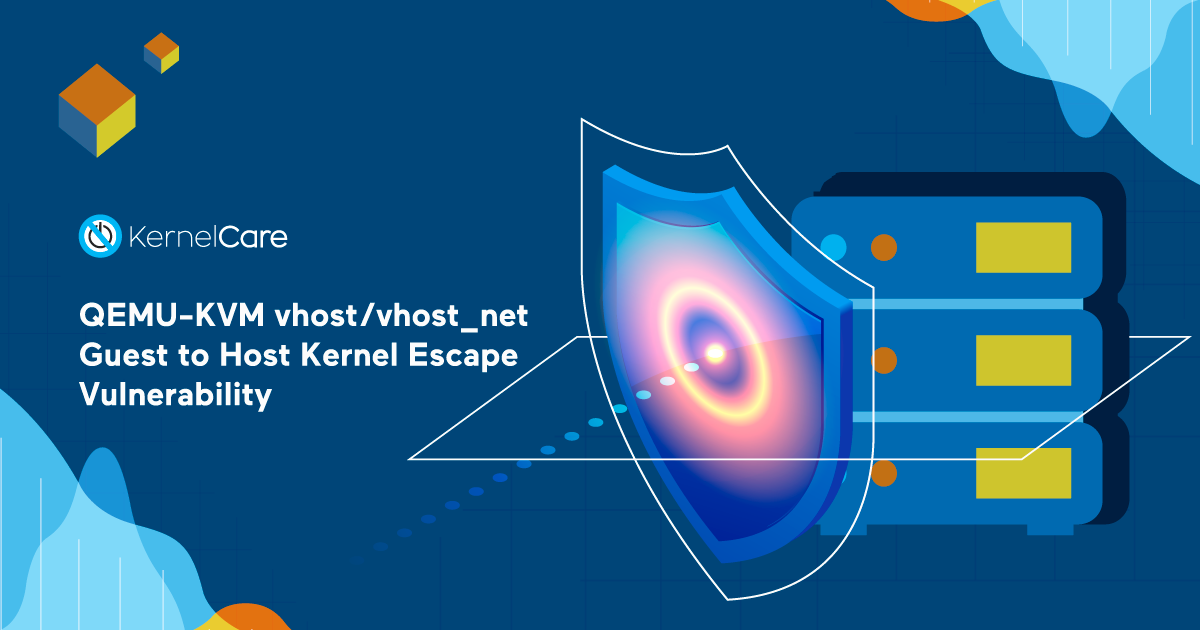QEMU-KVM vhost/vhost_net Guest to Host Kernel Escape Vulnerability

The KernelCare team are following developments for a recently-reported vulnerability involving QEMU-KVM guests running Linux kernels.
The vulnerability was reported by the Blade Team at Tencent, and has been given the registration CVE-2019-14835. It works as follows.
QEMU-KVM virtual instances using the vhost/vhost_net network back end use a kernel buffer to maintain a log of dirty pages. The bounds of this log are not checked by the kernel and can be made to overflow by forcing the virtual machine to migrate.
This can happen when the VM is cloud-hosted and suffers a temporary resource surge or memory leak. This in turn can trigger the cloud hosting vendor to migrate the instance, revealing the contents of the guest’s dirty pages log to the host.
This vulnerability is in all Linux kernels, from 2.6.34 to the most recent. The only known mitigation is to upgrade to the latest 5.3 kernel.
KernelCare are tracking this report and are working on mitigating patches for all supported platforms. They’ll be available today.
Patches Released to Production:
- Debian 10
- Debian 8
- Debian 8-Backports
- Debian 9
- OEL 7
- RHEL 7
- CentOS 7
- CentOS 7-Plus
- PVE 5
- Ubuntu Bionic
- Ubuntu Bionic HVE
- Ubuntu Trusty
- Ubuntu Trusty LTS Xenial
- Ubuntu Xenial
- Ubuntu Xenial LTS Bionic
Patches Released to the test repository:
- CentOS 6
- CentOS 6-Plus
- OEL 6
- OpenVZ
- RHEL 6
- SL 6
Read more about live patching of critical CVEs without a reboot here:
About KernelCare
KernelCare is a live patching system that patches Linux kernel vulnerabilities automatically, with no reboots. It’s used on over 300,000 servers, and has been used to patch servers running for 6+ years. It works with all major Linux distributions, such as RHEL, CentOS, Amazon Linux, and Ubuntu. It also interoperates with common vulnerability scanners such as Nessus, Tenable, Rapid7, and Qualys. To talk with a consultant about how KernelCare might meet your enterprise’s specific needs, contact us directly at [email protected].

 Documentation
Documentation Login
Login



